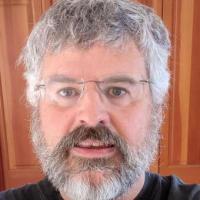SystemX Affiliates: login to view related content.

The Heisenberg Uncertainty Principle limits the sensitivity of the electromagnetic signal measurements that are used in some experiments to search for the "dark matter" that makes up 85% of the matter in the universe. Some promising new dark-matter experiments search for ultralight dark-matter candidates, including axions and hidden photons, which would generate an electromagnetic signal at a frequency f associated with the dark matter particle mass m, according to hf=mc^2. Measuring this electromagnetic signal in a well shielded laboratory environment would allow a direct probe of dark matter. Until recently, the sensitivity of these experiments has been limited by the quantum noise imposed by the Heisenberg Uncertainty Principle when both the amplitude and phase of an electromagnetic field are measured. Quantum sensors are now emerging that can greatly improve on the measurement of this electromagnetic signal. These sensors take advantage of noise squeezing, entanglement, backaction evasion, and other techniques to evade the standard quantum limit imposed by Heisenberg, greatly accelerating the search for dark matter. I will describe the quantum sensors that we are developing to accelerate dark-matter searches in the 100 Hz - 300 MHz frequency range, and the "Dark Matter Radio," a new experiment at Stanford that will use these sensors.
Kent Irwin is a Professor of Physics at Stanford University, and of Particle Physics & Astrophysics and Photon Science at SLAC. He received a B.S. in physics from Caltech and M.S. and Ph.D. in physics from Stanford University. From 1996-2013 he was a scientist and, subsequently, NIST Fellow at the National Institute of Standards and Technology in Boulder, Colorado. Since 2013 he has been at Stanford. Irwin's research utilizes sensitive superconducting integrated circuits for the sensitive measurement of electromagnetic signals to better understand fundamental physics, and to probe the inorganic chemistry of bioproteins through x-ray spectroscopy at SLAC. His sensors are deployed in every experiment presently in the field to measure the cosmic microwave background.


